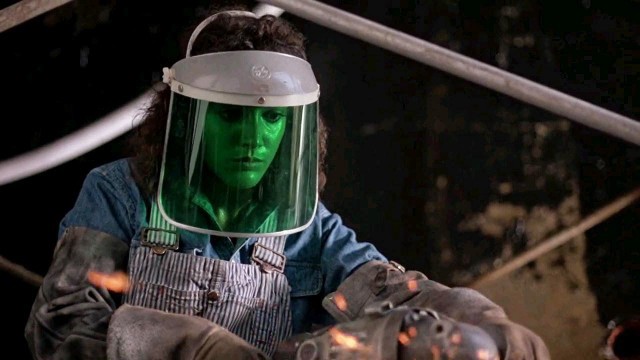Philosophers Are Loaded & Live Forever, Don’t Wish They Were Welders

There’s a fun game the media plays every election year, and these days every year feels like an election year. Candidate X makes a bold, attention-getting declaration. The media raises some egg-head-y objection like, “Well, technically, that’s not true …” Some late night comedians make jokes; some bloggers blog. Candidates continue candidate-ing, unperturbed.
The most recent iteration of this interaction happened during a GOP debate. Which one? God, I don’t know, it feels like there have been 50,000 already, doesn’t it? It was one of the ones without the big plane backdrop, I can tell you that much. I’m so tired and it’s not even 2016 yet.
Anyway, here’s CNN, which was actually paying attention:
Marco Rubio responded to a question about work, wages and college tuition by attacking philosophy majors. He said:
“Here’s the best way to raise wages. Make America the best place in the world to start a business or expand an existing business, tax reform and regulatory reform, bring our debt under control, fully utilize our energy resources so we can reinvigorate manufacturing, repeal and replace Obamacare, and make higher education faster and easier to access, especially vocational training. For the life of me, I don’t know why we have stigmatized vocational education. Welders make more money than philosophers. We need more welders and less philosophers.” …
Philosophy majors generally make a lot more money than welders. As many in the media remarked, philosophy majors generally make a lot more money than welders. According to the Bureau of Labor Statistics, over time, philosophy majors (not just that tiny sliver who become professors) average around $80,000 a year, about twice what welders average.
As my nerdy friends were quick to point out, Rubio should have said “fewer” philosophers. (Less philosophy, fewer philosophers.) I’m sure some reflex was triggered and NPR automatically sent each of them a tote bag.
The real issue here, though, is that, as CNN points out, philosophy majors actually make far more than welders, like twice as much. And college grads, even ones with liberal arts degrees, make more than folks with nothing but a high school diploma.
Maybe we shouldn’t pit workers against each other. Maybe we should try to raise wages across the board, on the assumption that everyone, except the folks way at the top who are doing fine, could use a raise. What’s that word for when we band together and bargain together for better working conditions, again? Oh yeah. Solidarity.
The best way to help the large swath of American middle class — both white-collar workers and blue-collar workers — is to focus on a new labor movement and revitalize unions.
A study from the Economic Policy Institute shows a strong correlation between a decline in unions and rise in income inequality.
The AFL-CIO has shown that nonunionized construction workers make around $20,000 less a year than their unionized counterparts. The welders at the American Welding Society message board all testify to the job security and generally higher pay of union jobs.
Jody Collier, author of weldingtipsandtricks.com, says, “If you are going to weld pipe for a living, be aware of this plain fact. Union pipe welders often make more money than nonunion pipe welders. Never mind all the philosophical arguments about the merits of union vs. nonunion. That’s for another day. You don’t have to know all the details to know that more money is a good thing.”
Unfortunately, union membership is falling, and too many people don’t seem to care.
The labor movement was never perfect. But high union membership has historically been linked with greater middle-class prosperity. And while union membership has been falling, many of the people who used to benefit most from participation in the labor movement, the American white working-class, is suffering and dying at alarming rates. Correlation, not causation, of course. But the general malaise of low-paid blue-collar workers is, commentators agree, a significant problem. Maybe renewed union participation — being part of something bigger than one’s individual self — would help with mood and outlook, as well as with income.
“An anthropologist friend here says that [white, middle-age Americans] have lost the narrative of their lives — meaning something like a loss of hope, a loss of expectations of progress,” [Deaton] explained. …
Deaton says this particular group of middle-aged white Americans may have had higher expectations than others when it comes to steady employment and a bright future, and the stress of losing that could well be driving their deadly behaviors.
“The white non-Hispanics may be more susceptible to despair, and perhaps to the alcohol or drug ‘solution,’ especially those with less education,” he said.
Blue-collar workers like welders make less and die sooner. Under these circumstances, it seems dangerous to encourage more people to take up blowtorches instead of philosophy. Or maybe when Rubio says we need more welders, he means that we need them to replace the ones that are dying prematurely from despair.
Support The Billfold
The Billfold continues to exist thanks to support from our readers. Help us continue to do our work by making a monthly pledge on Patreon or a one-time-only contribution through PayPal.
Comments